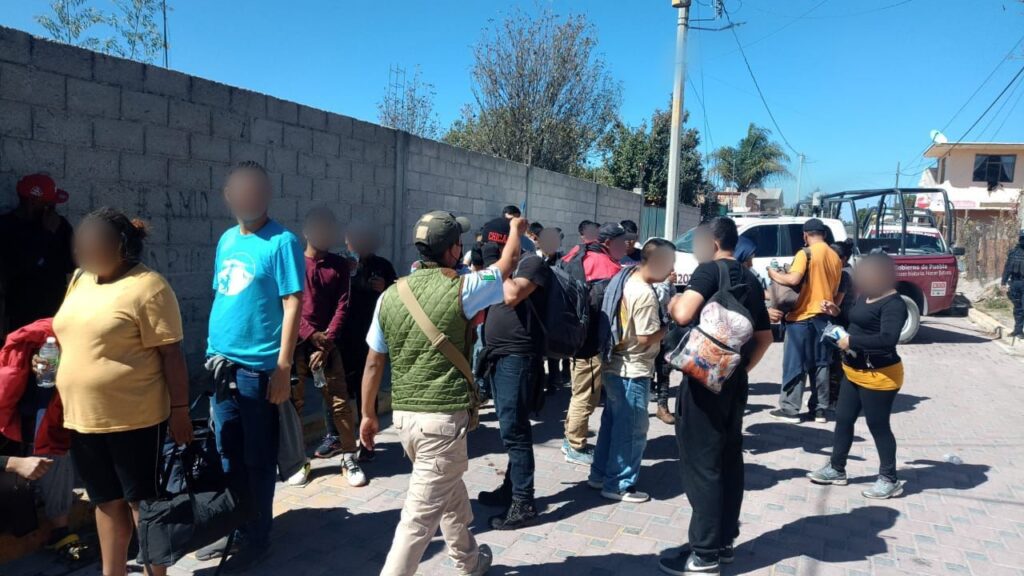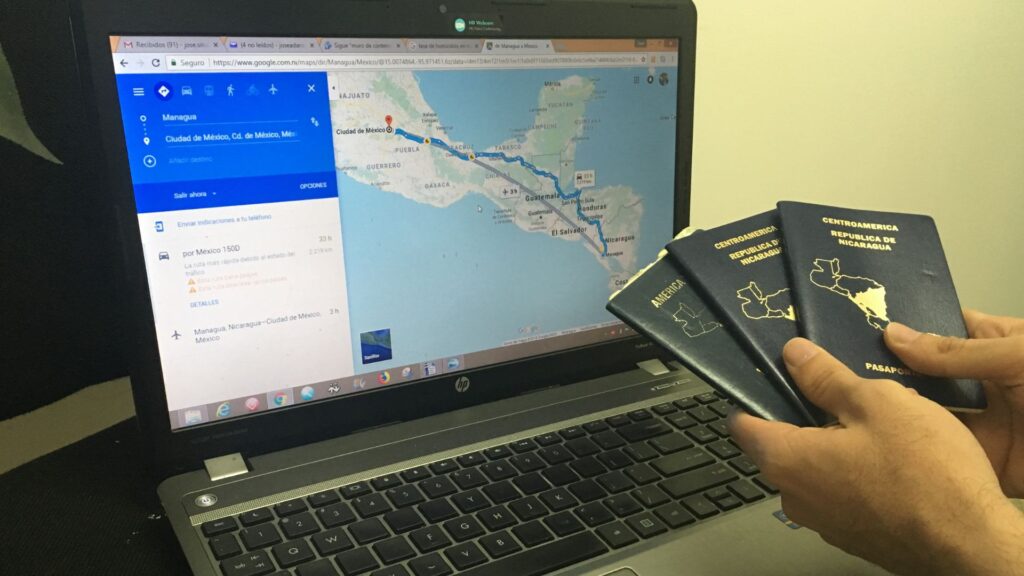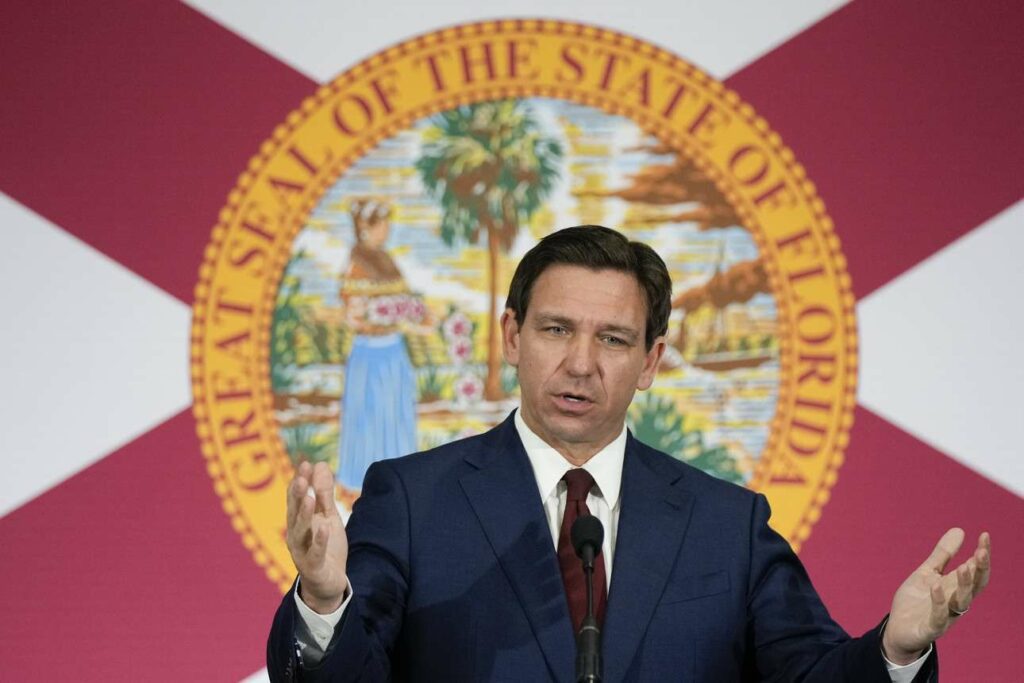The idea of the former president of the United States, Donald Trump, was to build a border wall that would prevent access to US territory to millions of migrants who were looking for the American dream.
Trump has already left power and although he never hit a single brick to build his fence, a gigantic legal wall is preventing not only access to the United States for thousands of Nicaraguans who aspire to live in this country, but also threatening the permanence of others thousands who managed to enter between 2018 and 2022.
Related news: “Nica migration exceeds that of the 1980s,” say human rights defenders
Although it may seem incredible, bills proposed by anti-immigrant Republicans have had, like never before, the support of their Democratic counterparts under the administration of President Joe Biden.
In this 2023, an arsenal of legal initiatives have been proposed, discussed, implemented and in some cases approved in the United States that seek to curb migration, expel the undocumented and penalize all kinds of support for migrants.
Controversial “Dignity Law”
The most recent legal initiative is called the “Dignity Law”. It was presented on May 23 at the United States Capitol and is led by a descendant of migrants: the Republican congresswoman for the State of Florida, María Elvira Salazar.
The immigration reform proposal was presented by a bipartisan group of representatives who seek to reduce the arrival of migrants and establish charges to regularize the legal status of some 12 million undocumented immigrants in the country. The “Dignity Law” would establish “tougher measures and higher penalties” for irregular migration, the author of the proposal assured the Voice of America.
Salazar says that the law includes ways in which undocumented immigrants must pay to access legal status and that this process would not cost US taxpayers a penny.
The bill establishes the creation of the “Dignity Program”, which would grant legal status to undocumented persons for seven years with the possibility of being renewed, for a total charge of $5,000 in annual fees, but before they must go through a background check penalties and audits for tax payments, at the same time that they will be obliged to provide community services.
They want migrants to pay for the law
The intention, according to the congressmen, would be to limit the current access of undocumented people to public services such as hospitals and schools, and force them to finance their own health insurance or private education while paying to maintain their legal status.
«Here nobody can live for free… I don’t want anyone to confuse amnesty with dignity. Amnesty is what the undocumented currently have, with the Dignity Law, everyone pays for what they owe, “said Salazar.
Related news: Republicans approve HR2 law against undocumented immigrants, which tries to stop migration
The law also contemplates the construction of migrant camps and processing centers where migrants will be detained for 60 days while their case is processed, to prevent migrants from evading immigration authorities while on probation.
The funds collected in the implementation of the law would be used to finance re-education programs for Americans “who feel they have lost their job at the hands of an immigrant.” The congresswomen assured that they will begin conversations with both parties to ensure that the measure is approved in the House and the Senate.
The law also requires that all employers use the online E-Verify system throughout the country to avoid employing undocumented workers.
In tune with DeSantis Law
This last aspect of using the E-Verify system in the new law proposal is based on the proposal of the toughest anti-immigrant legislation that was approved in Florida, one of the States that most attracts Nicaraguan and Latin American migrants.
The father of the law is Republican Gov. Ron DeSantis, who will require, starting July 1, all private employers in the state with more than 25 workers to use the E-Verify app.

DeSantis signed a law this month that penalizes not only migrants, but also residents, citizens, businessmen and officials who support migrants in irregular conditions with jail and fines.
DeSantis’ law is considered the most discriminatory legislation against immigrants in the entire United States, by preventing migrants from free movement, employability, health care and access to basic humanitarian services.
The law even punishes those who transport, house or do not report undocumented migrants to the authorities with up to five years in jail.
The rudeness of title 8
At the end of Title 42 this month, an immigration provision that allowed the entry of millions of migrants since the time of the pandemic, the United States has implemented and toughened Title 8, which replaces the previous border measure.
As of May 12, migrant families who do not qualify for the asylum requirements at the border of the United States and Mexico will be returned within a period of 30 days after the initiation of the removal procedure, the Secretary of Homeland Security reported at the time. USA, Alejandro Mayorkas.
Related news: Opponents ask the US to approve a TPS that benefits persecuted politicians in Nicaragua
This announcement is part of the implementation of new rules under Title 8, which remained standing after the end of the sanitary restrictions of the COVID-19 era, which ended on May 11.
The repeal of Title 42, applied during the worst of the pandemic, brings a tightening of asylum conditions for irregular migrants who will arrive at the border.
Families who do not use legal avenues to immigrate to the US will be “placed in expedited removal proceedings and those who receive a final negative determination of credible fear will generally be deported within 30 days of being placed in those proceedings,” it said. Mayorkas before reporters at the White House.
Electronic shackles and mass expulsion of families
The US Immigration and Customs Enforcement (ICE) also announced a new process for “family units detained at the southwest border who are processed for expedited removal and indicate intent to seek asylum.” or express fear of persecution or torture.”

Called Family Expedited Removal Management (FERM), the measure is a mechanism for the management of accelerated removal of families, under which “certain heads of family” will be placed an ankle monitor with GPS technology that will allow “continuous tracking and will be subject to a curfew.”
Families “should not listen to the lies of the smugglers. Like single adults, non-citizens traveling with their children who do not have a legal basis to remain in the US will be quickly removed and barred from re-entry for at least five years,” ICE warned.
The end of the humanitarian parole?
The Biden administration has faced numerous criticisms, both from Republicans who advocate tougher handling of the immigration crisis, and from Democrats and activists who claim that these new measures do not guarantee the rights of migrants.
To stop the flow of migrants from Cuba, Venezuela, Nicaragua and Haiti, Biden activated a humanitarian parole program in January of this year to allow migrants from that country to legally enter the United States through a monthly selection of 30,000 cases.
The parole window has triggered the demand for this type. According to US journalistic sources, there are currently 1.5 million applications pending to be processed by immigration authorities.

However, on January 24, 20 states filed a lawsuit against the Biden administration asking the Texas Federal Court to stop the humanitarian parole program.
The program would remain in force at least until June 12, the date on which the hearing for the lawsuit is scheduled to cancel it. The trial would last between 2 and 12 days and if canceled the parole’s humanitarian permits would be immediately stopped.
End of political asylum and parole?
Another of the legal initiatives promoted in the United States this year is the Border Security Act 2023, promoted by Republicans. This month the lower house voted 219 to 213 for the bill, with no Democrats in favor and one Republican against.
Related news: The humanitarian parole, the United States program that has saved the lives of my compatriots
The new rules would also resume construction of a wall along the southern border and expand federal enforcement efforts. The legislative package, which Biden promises to veto, would establish strict limits on political asylum seekers and would force them to request US protection outside the country, would block initiatives such as parole and would toughen the requirements to regularize undocumented migrants.
The proposal has been approved in a first stage, but there are two more rounds of voting to go before it reaches Biden’s desk.
Nicas the least benefited with visas
Nicaragua is the Central American country with the lowest approval of B1 and B2 tourist visas, according to figures from the office of consular affairs. In 2022, 16,029 B1 and B2 visas were approved for Nicaraguans, a relatively low figure compared to its neighboring country Costa Rica, with 64,221 in the same period.
On the other hand, Nicaragua, in general, heads the list of denial of type “B” visas in the Central American region, with 50.81%; followed by El Salvador with 45.46% and Honduras with 30.47%.

The United States offers more than 20 types of non-immigrant visas for people who travel to this country temporarily; in the case of B1 and B2 it is granted for business and tourism.
Under US law, there are many standards under which a visa application may be denied, such as the fact that a consular officer does not have all the information required to determine whether the applicant is eligible to receive it, or that the applicant does not qualify for the visa category for which you applied.
Nicaragua is the largest country in Central America with just over 6 million inhabitants, according to the most recent census. Between 2018 and 2022, it is estimated that almost 600,000 Nicaraguans migrated to various countries, mainly the United States, Costa Rica, Spain, and other countries in the region.

















